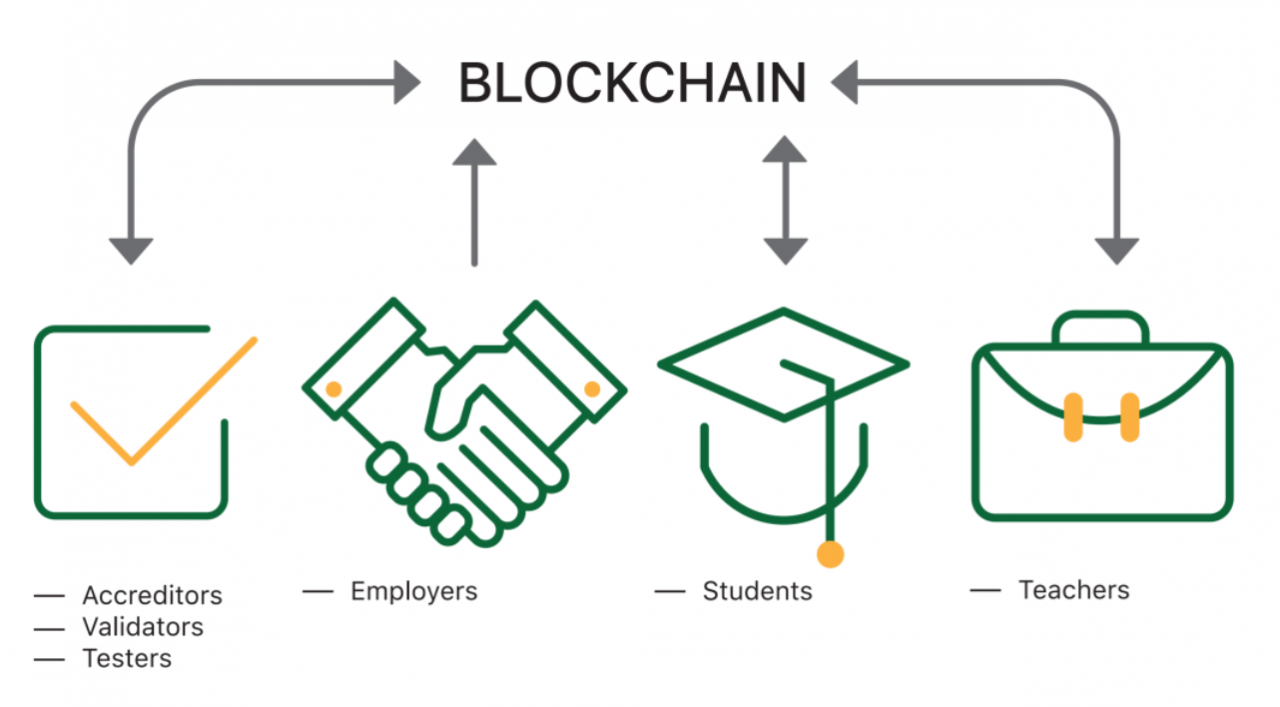Blockchain in Education Report
The European Commission's Joint Research Centre (JRC) in Seville has published the report on blockchain in education. The report is written by Alex Grech, Anthony Camilleri and Andreia Inamorato. The report introduces the fundamental principles of the Blockchain focusing on its potential for the education sector. It explains how this technology may both disrupt institutional norms and empower learners. It proposes eight scenarios for the application of the Blockchain in an education context, based on the current state of technology development and deployment.
Key Advantages of Blockchain Technology
According to the report there are six key advantages that go beyond those currently available:
- Self-sovereignty, i.e. for users to identify themselves while at the same time maintaining control over the storage and management of their personal data;
- Trust, i.e. for a technical infrastructure that gives people enough confidence in its operations to carry through with transactions such as payments or the issue of certificates;
- Transparency & Provenance, i.e. for users to conduct transactions in knowledge that each party has the capacity to enter into that transaction;
- Immutability, i.e. for records to be written and stored permanently, without the possibility of modification;
- Disintermediation, i.e. the removal of the need for a central controlling authority to manage transactions or keep records;
- Collaboration, i.e. the ability of parties to transact directly with each other without the need for mediating third parties.
I agree with the authors that blockchain applications for education are still in their infancy, though quickly picking up steam. But in most pilots are technology-led and don't start with a proper problem analysis.
Other conclusions of the authors:
- The full benefits of blockchain technology are only achieved through open implementations
- Blockchain may disrupt the market in student information systems
- Vested interests have an interest in locking down blockchain technology and creating standards based around partial implementations
- Public private partnerships are necessary to fully exploit blockchain
- Blockchain technology has the potential to accelerate the end of a paper-based system for certificates
- Blockchain technology removes the need for educational organisations to validate credentials
- Blockchain has the potential to release a wave of innovation around learners’ data
- Self-Sovereign Identities have the potential to significantly reduce educational organisations’ data management costs
- Blockchain technology enables much more sophisticated systems for reliably tracking usage of intellectual property
- Educational networks can automate and standardise many of their functions through decentralised autonomous networks
- Regulation and Standardisation may determine the extent and speed of progress
- People are unaware on the social advantages and potential of blockchain technology
In the report they describe eight scenarios for blockchain in education:
- Using Blockchains to permanently secure certificates
- Using blockchains to verify multi-step accreditation
- Using a blockchain for automatic recognition and transfer of credits
- Using a blockchain as a lifelong learning passport
- Blockchain for tracking intellectual property and rewarding use and re-use of that property
- Receiving payments from students via blockchains
- Providing student funding via blockchains, in terms of vouchers
- Using Verified Sovereign Identities for Student Identification within Educational Organisations
Conclusion
The report gives a good overview of blockchain technology and the possible application in the field of education. I do see that the technology is still in infancy stage and we should not overhype it. It is not the solution to all our problems.
Reference
- Grech, A. and Camilleri, A. F. (2017) Blockchain in Education. Inamorato dos Santos, A. (ed.) EUR 28778 EN; doi:10.2760/60649
No feedback yet
Form is loading...
